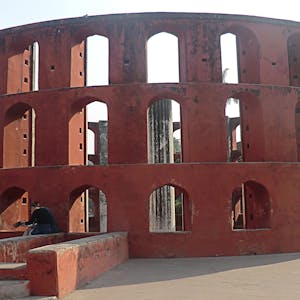This engaging course, "Contemporary India," offers a comprehensive exploration of the diverse facets of modern India following its independence from Great Britain. From the continuing influence of ancient texts to the challenges of economic transition and gender inequality, the course delves into the complex social, political, and economic dynamics shaping contemporary India.
The course, taught in English, provides a fascinating journey through the historical, political, and cultural landscape of India. It critically examines the tensions inherent in the country's ongoing changes, addressing topics such as gender inequality, economic transition, political democracy, and India's economic globalization. Throughout the modules, students will gain insights into the evolving world view, the influence of ancient texts, and the impact of market valuation on traditional socio-centric values.
Certificate Available ✔
Get Started / More Info
Contemporary India's modules cover a wide range of topics, from the colonial history and Indian politics to the long transition of India's economy, its foreign policy, women and gender issues, traditional narratives like The Ramayan, and the presence of traditional art forms in modern India.
MODULE 1: This module provides an overview of contemporary India's history, exploring colonial history, pre-partition history, and the impact of partition and nation-states. Students will gain insights into the multifaceted historical background that has shaped modern India.
MODULE 2: Delving into Indian politics from 1948 to 2014, this module examines the dynamics 'from above' and 'below.' Students will gain a comprehensive understanding of the political landscape and its evolution over the years.
MODULE 3: Focusing on the long transition of India's economy, this module explores the substance of state intervention, the exhaustion of state-led development, and the market reforms of 1991. Students will gain insights into India's place in the world economy and the major challenges ahead.
MODULE 4: This module provides an in-depth study of India's foreign policy, covering the seven phases it has undergone, from the limits of idealism to the consolidation of U.S – India relations. Students will gain a comprehensive understanding of India's diplomatic history.
MODULE 5: Addressing women, gender, and feminist struggles in India, this module covers the success stories, continuities, paradoxes, and challenges faced by different groups. Students will gain insights into the diverse issues concerning gender in contemporary India.
MODULE 6: Exploring The Ramayan, this module delves into the significance of the text and tradition, as well as specific episodes such as Ram and Sita's wedding and the battle at Lanka. Students will gain a deeper understanding of traditional narratives in Indian culture.
MODULE 7: This module focuses on the presence of traditional art forms in today's India, addressing issues such as economic imperialism, commodification, and conservation. Students will gain insights into the evolving landscape of traditional art in modern India.
Methods and Statistics in Social Sciences empowers learners to develop evidence-based decision-making skills. The capstone project allows practical application of...
Health, Housing, and Educational Services course covers policies in housing, education, healthcare, immigration, and child protection. It addresses issues of power,...
"Planification des mobilités" explores the multifaceted aspects of mobility, encompassing environmental, economic, territorial, and social implications....
This course explores the factors and impact of gender-based violence, addressing the need to recognize and combat systemic inequalities. Participants will gain insights...